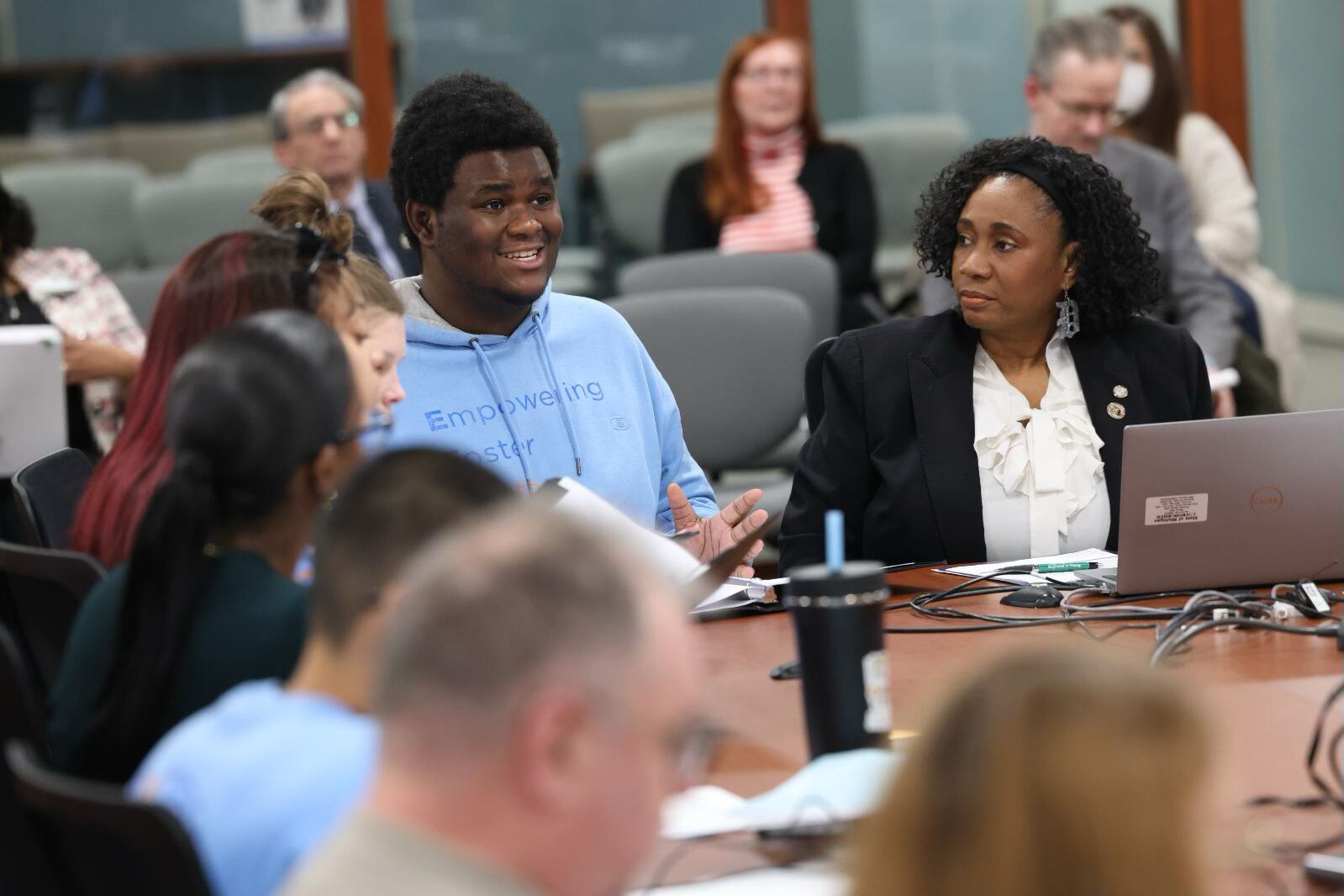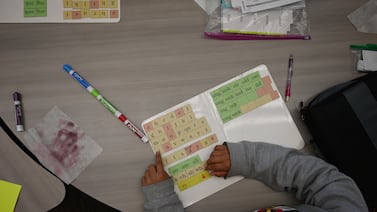Sign up for Chalkbeat Detroit’s free daily newsletter to keep up with the city’s public school system and Michigan education policy
Gov. Gretchen Whitmer has signed legislation to ensure that students placed in foster care receive a quality education, a guarantee that has been missing in Michigan and has led to gaps in education for many youth.
The legislation was inspired by the stories of young people who told state education officials and lawmakers that their education was disrupted or inadequate.
The legislation Whitmer signed Thursday was part of a three-bill package that will now require residential facilities to enroll students in school within five days of placement and to provide an education that meets the state’s graduation requirements.
The bill was designed to address complaints from foster youth that they missed weeks of school and in some cases learned that the education they received didn’t meet state standards. The state has an estimated 10,000 kids in foster care, but the total number is unknown because many go uncounted in the current system, advocates say.
“When I heard the heartbreaking stories of foster youth who were working hard at their studies, only to discover their caretakers had given them busy work that wouldn’t count toward graduation, I knew I had to act,” Rep. Stephanie Young, a Democrat from Detroit who introduced the legislation, said in a statement.
Young told Chalkbeat earlier this year that many foster youth have experienced trauma and that “the very minimum we can do is ensure they get the best education they can.”
Whitmer previously signed two other pieces of legislation that were part of the package. One requires the Michigan Department of Education to oversee residential foster care facilities’ educational programs and enforce compliance. The other requires the education department, the Michigan Department of Health and Human Services, and the state Center for Educational Performance and Information to track the number of children in foster care, where they are, and how they’re progressing in their education. That information must be reported to the legislature.
Christian Randle, a high school senior who was in foster care for several years, said this to Chalkbeat earlier this year about the legislation:
“It’s the bare minimum that they can do, because they haven’t been doing anything for years,” said Randle. “It shouldn’t even have taken this long to pass the bills. Just the fact that it’s had to take this long shows a lot about how kids in foster care are treated.”
Randle entered a foster care residential facility at age 11 and worked diligently on his schoolwork to fulfill a promise he made to himself to graduate high school. But when he tried to enroll in a traditional high school two years ago, he found no record of him attending nearly three years of high school.
“Through all that stress and trauma going on inside of that foster care facility, the one thing I was happy about coming out of it was my schooling,” Randle, who now lives on his own, told Chalkbeat. “And that was taken away from me.”
“Michigan’s foster kids deal with so many challenges in their lives, but being denied graduation because their curriculum is inadequate should never be one of them,” Thomas Hickson, Jr., vice president of public policy and advocacy for the Michigan Catholic Conference, said in a statement. “All Michigan’s children deserve a quality education to be able to succeed later in life.”
Chalkbeat reporter Hannah Dellinger contributed to this report.
Lori Higgins is the bureau chief for Chalkbeat Detroit. You can reach her at lhiggins@chalkbeat.org.







